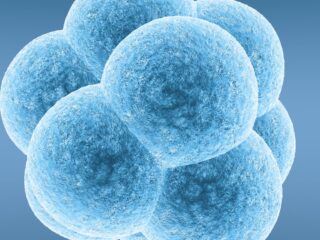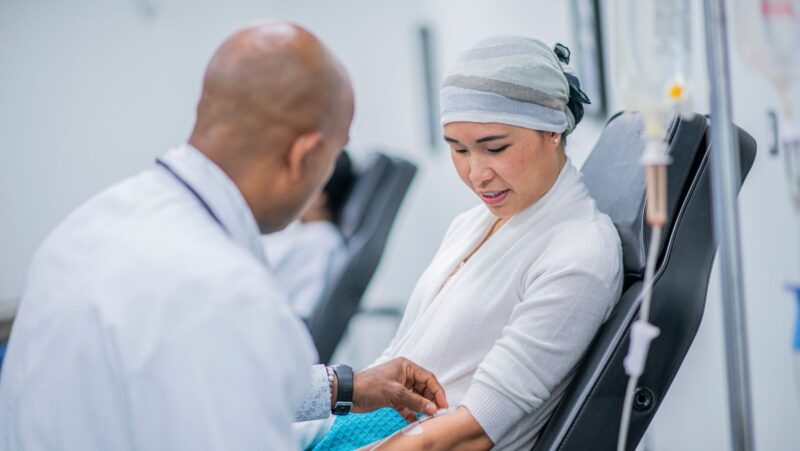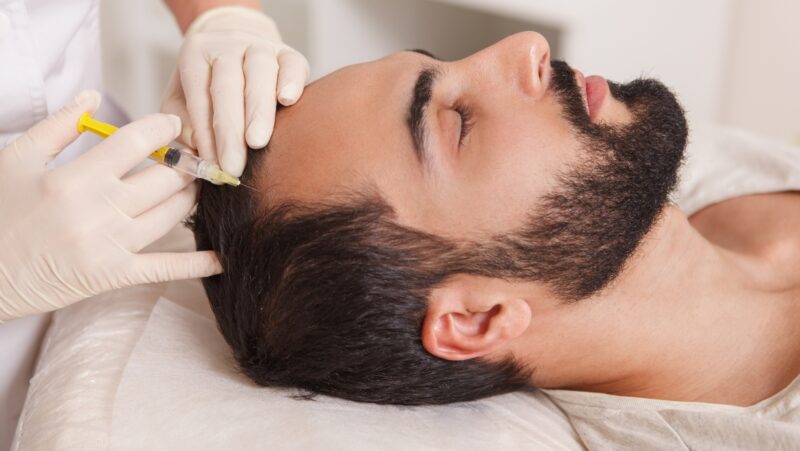
Many healthcare professionals with health science degrees wonder about transitioning into advanced nursing roles. While a health science degree provides valuable medical knowledge it’s not a direct path to becoming a nurse practitioner (NP).
The journey from health science to nurse practitioner requires strategic planning and additional education. Students must first become registered nurses (RNs) through an approved nursing program before pursuing their NP credentials. Though it may seem challenging the existing foundation in health sciences can prove advantageous during this educational transition. With the healthcare industry’s growing demand for advanced practice nurses this career path offers exciting opportunities for those willing to invest in their professional development.
Can I Become a Nurse Practitioner with a Health Science Degree
Nurse practitioners deliver primary advanced patient care through diagnosis treatment prescription management. NPs perform comprehensive health assessments evaluate medical conditions prescribe medications order diagnostic tests.
Clinical Responsibilities
A nurse practitioner’s clinical duties include:
- Conducting physical examinations on patients of all ages
- Diagnosing acute illnesses fractures infections allergic reactions
- Prescribing medications treatments therapies based on patient conditions
- Interpreting laboratory results x-rays diagnostic tests
- Managing chronic conditions like diabetes hypertension asthma
- Performing minor surgical procedures such as suturing wounds removing lesions
Practice Authority
NP practice authority varies by state:
- Full Practice: 28 states allow independent patient care without physician oversight
- Reduced Practice: 11 states require collaborative physician agreements
- Restricted Practice: 11 states mandate direct physician supervision
- Family Care (FNP): Treats patients across lifespans
- Adult-Gerontology (AGNP): Focuses on adult elderly care
- Pediatric Care (PNP): Specializes in infant child adolescent health
- Women’s Health (WHNP): Provides gynecological reproductive care
- Psychiatric Mental Health (PMHNP): Treats behavioral mental health conditions
| Specialization | Patient Population | Practice Settings |
|---|---|---|
| Family Care | All Ages | Primary Care Clinics |
| Adult-Gerontology | Adults Elderly | Hospitals Long-term Care |
| Pediatric | Birth-21 Years | Pediatric Offices Schools |
| Women’s Health | Adolescent Adult Women | OB/GYN Clinics |
| Psychiatric | All Ages | Mental Health Facilities |
The Path From Health Science to Nursing
Health science graduates possess valuable medical knowledge that transfers effectively into nursing practice. The transition requires strategic planning through specialized educational pathways.
Bridge Programs for Health Science Graduates
Bridge programs offer accelerated routes for health science graduates to enter nursing practice. These specialized programs recognize prior coursework in anatomy, physiology, chemistry, and biology, reducing the time to earn a Bachelor of Science in Nursing (BSN) from 4 years to 12-18 months. Notable bridge programs include:
- Direct Entry MSN Programs accepting non-nursing bachelor’s degrees
- Accelerated BSN Programs designed for career changers
- RN-BSN Programs with advanced placement options
- Health Science to BSN Transfer Programs at select universities
- Minimum GPA of 3.0 in undergraduate coursework
- Completion of nursing prerequisite courses:
- Microbiology with lab
- Human Growth & Development
- Statistics
- Nutrition
- Clinical requirements:
- Current CPR certification
- Health screenings & immunizations
- Background check clearance
- Entrance exam scores:
- TEAS (Test of Essential Academic Skills)
- GRE (Graduate Record Examination) for MSN programs
| Requirement Type | Duration | Common Prerequisites |
|---|---|---|
| Bridge Programs | 12-18 months | Health Science Bachelor’s |
| Clinical Hours | 600-1000 hours | RN License |
| Prerequisite Courses | 3-6 months | 3.0+ GPA |
Earning Your Bachelor of Science in Nursing (BSN)
A Bachelor of Science in Nursing (BSN) serves as the foundation for advancing to a nurse practitioner role. Health science graduates can choose between accelerated or traditional BSN programs based on their academic background and time constraints.
Accelerated BSN Programs
Accelerated BSN programs transform health science graduates into registered nurses in 12-18 months. These intensive programs build upon existing science credits from health-related degrees, including:
- Anatomy coursework transfers directly to nursing prerequisites
- Microbiology credits apply toward infection control studies
- Chemistry foundations support pharmacology understanding
- Psychology credits fulfill behavioral health requirements
Program characteristics include:
| Component | Details |
|---|---|
| Duration | 12-18 months |
| Credit Hours | 50-60 nursing-specific credits |
| Clinical Hours | 700-800 hours |
| Class Schedule | Full-time, year-round |
| Minimum GPA | 3.0 |
Traditional BSN Programs
Traditional BSN programs provide comprehensive nursing education over four years. The curriculum structure includes:
- Two years of general education requirements
- Two years of nursing-specific coursework
- 800-1000 clinical practice hours
- Hands-on laboratory experiences
Prerequisites for admission encompass:
- High school diploma or equivalent
- SAT/ACT scores
- Letters of recommendation
- Personal statement
- Background check clearance
| Program Type | Average Total Cost |
|---|---|
| Public Institution | $40,000-$80,000 |
| Private Institution | $60,000-$150,000 |
| Per Credit Hour | $300-$900 |
Completing Your Master of Science in Nursing (MSN)
The Master of Science in Nursing (MSN) program transforms registered nurses into advanced practice nurses through specialized clinical training. MSN programs typically take 2-3 years to complete with 500-700 classroom hours.
Clinical Hours and Specialization
MSN programs require 500-1,000 clinical practicum hours in specialized healthcare settings. Clinical rotations focus on:
- Primary Care: Delivering comprehensive health services in family practice settings
- Acute Care: Managing complex patient cases in hospital environments
- Specialty Care: Practicing in focused areas like pediatrics or women’s health
- Leadership: Coordinating patient care teams in clinical settings
| Specialization Track | Required Clinical Hours | Average Program Length |
|---|---|---|
| Family NP | 600-700 | 24 months |
| Adult-Gerontology | 500-600 | 20 months |
| Pediatric NP | 600-800 | 24 months |
| Women’s Health | 500-700 | 20 months |
| Psychiatric Mental Health | 600-1,000 | 24 months |
The clinical components include:
- Direct patient care experiences
- Case management training
- Evidence-based practice implementation
- Documentation of patient outcomes
- Collaboration with healthcare teams
- Application of advanced nursing theories
Students select specialization tracks based on their career goals while meeting state-specific requirements for nurse practitioner certification.
Getting Licensed and Certified as a Nurse Practitioner
State Licensing Requirements
Nurse practitioner licensing requirements vary by state with specific education credentials clinical hours documentation. Each state board of nursing mandates:
- Completion of an accredited MSN or DNP program
- Passing the national certification exam in a specialty area
- Submitting proof of clinical practice hours
- Maintaining active RN licensure
- Completing state-specific background checks fingerprinting
National Board Certification
National certification demonstrates expertise in specialized areas of nursing practice through examination. Primary certification organizations include:
| Organization | Certification Areas | Renewal Period |
|---|---|---|
| AANP | Primary Care Family NP | 5 years |
| ANCC | Adult-Gerontology Psychiatric Mental Health | 5 years |
| PNCB | Pediatric Primary Acute Care | 7 years |
| NCC | Women’s Health Neonatal | 3 years |
Maintaining Certification
Certification maintenance involves:
- Completing 75-100 continuing education hours per renewal period
- Logging 1,000 clinical practice hours in specialty area
- Documenting current RN licensure prescriptive authority
- Submitting peer professional references
- Passing certification renewal examinations
Prescription Authority Requirements
Prescriptive authority requirements include:
- DEA registration for controlled substances
- State-specific pharmacology education hours
- Collaborative practice agreements in restricted states
- Documentation of supervised prescribing hours
- Annual controlled substance education updates
- Individual malpractice insurance ($1-3 million per occurrence)
- Employer liability coverage verification
- Additional riders for specific procedures
- Documentation of coverage limits scope
- Annual policy reviews updates
Timeline and Career Investment Considerations
The transition from a health science degree to becoming a nurse practitioner involves specific time commitments and financial investments across multiple educational phases.
Educational Timeline
- Accelerated BSN Program: 12-18 months
- RN Licensure Exam: 1-2 months for preparation and testing
- Clinical Experience: 1-2 years of required nursing practice
- MSN Program: 2-3 years of full-time study
- NP Certification: 2-3 months for exam preparation and testing
Financial Investment Breakdown
| Program Component | Average Cost Range |
|---|---|
| Accelerated BSN | $40,000 – $80,000 |
| NCLEX-RN Exam | $200 – $400 |
| MSN Program | $35,000 – $70,000 |
| NP Certification | $395 – $495 |
| Required CEUs (annual) | $500 – $1,500 |
Return on Investment Metrics
- Entry-Level RN Salary: $60,000 – $75,000
- Experienced RN Salary: $75,000 – $95,000
- Nurse Practitioner Salary: $95,000 – $120,000
- Career Advancement Opportunities: Clinical Leadership, Healthcare Administration, Academic Positions
Time-Saving Strategies
- Transfer existing science credits from health science degree
- Choose online or hybrid program formats
- Pursue part-time work during educational programs
- Select direct-entry MSN programs where available
- Complete prerequisite courses while working
- Licensing fees: $100-$400 per state
- Professional association memberships: $150-$300 annually
- Malpractice insurance: $1,000-$2,000 annually
- Continuing education requirements: 20-40 hours annually
- State-specific practice requirements: Varying collaboration agreements
Career Prospects and Professional Satisfaction
A health science degree provides a solid foundation for pursuing a career as a nurse practitioner though it requires additional education and training. The path involves completing an accelerated BSN program followed by an MSN degree with specialized clinical training. While this journey demands significant time and financial investment the career prospects and professional satisfaction make it worthwhile.
Healthcare facilities continue to seek qualified nurse practitioners and the demand keeps growing. With dedication strategic planning and the right educational choices health science graduates can successfully transition into rewarding careers as nurse practitioners delivering advanced patient care across various specializations.













